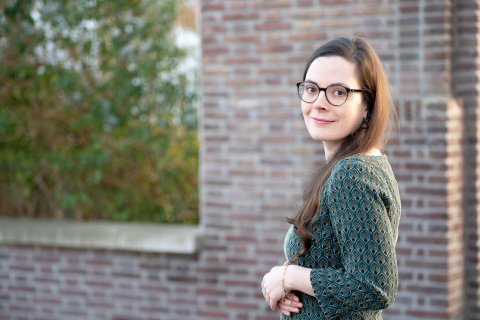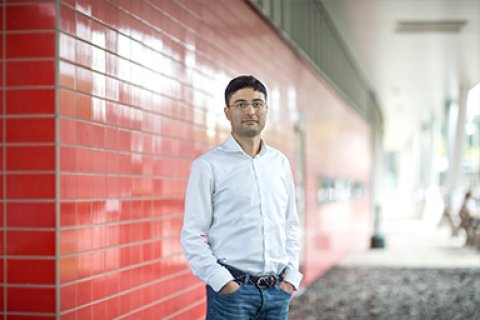Marjolijn Bol and Sanli Faez join The Young Academy (DJA)
Marjolijn Bol (History and Art History) and Sanli Faez (Physics) have been asked to join The Young Academy, an independent platform of the Royal Netherlands Academy of Arts and Sciences staffed by young top-level scientists who are visionaries in science and science policy. Besides Marjolijn and Sanli, both member of the Utrecht Young Academy, eight other young researchers have joined. In order to be eligible for membership of the Young Academy, a young researcher must have expressly distinguished themselves scientifically. A broad interest in science, the role of science in society and science policy are of essential importance as well.
Marjolijn Bol

Why did artists and their patrons desire objects they hoped could survive for centuries? Marjolijn Bol aims to answer this question in her current research on the history of durability in art. She investigates the relationship between history of art and knowledge from the history of materials and techniques. At The Young Academy, she is committed to promoting cross-disciplinary research and engage a broader audience with science.
Sanli Faez

Physicist Sanli Faez studies the movement of ions and electrons and has developed an optical microscopy method that can accurately measure high-speed movements of electrons. Using this method, he aims to measure reactions at the extreme limit of a single molecule. In 2019, he and his team showed that one can even see the accumulation of ions around an electrically charged nanoparticle under a microscope. Thanks to this development, it is now possible to measure small ion currents. Sanli is one of the founders of the KlimaatHelpdesk, a website where scientists answer questions from the public about climate change. At The Young Academy, he wants to contribute to the development of science policy that meets the needs of a circular society.
De Jonge Akademie
The Young Academy has fifty members who are each appointed for five years. Each year, ten new members are appointed who have obtained their PhD less than ten years ago. The Young Academy consists of top scientists of all scientific disciplines, who are employed at a Dutch university or research institute. Members each focus on at least one of the following themes: interdisciplinarity within science and scholarship, science policy, science and society, and internationalization.

